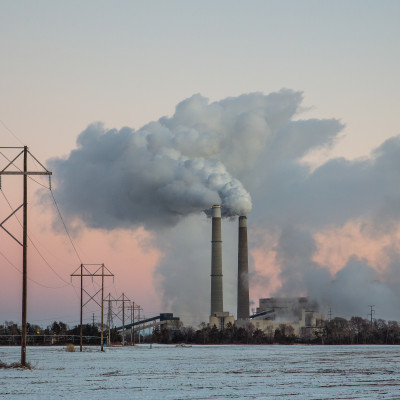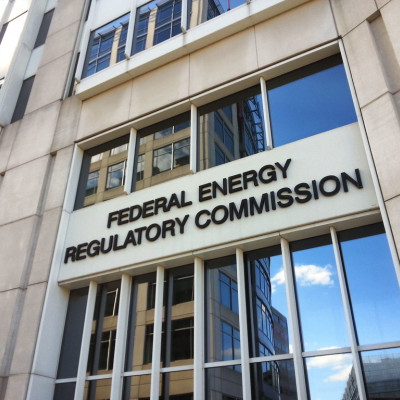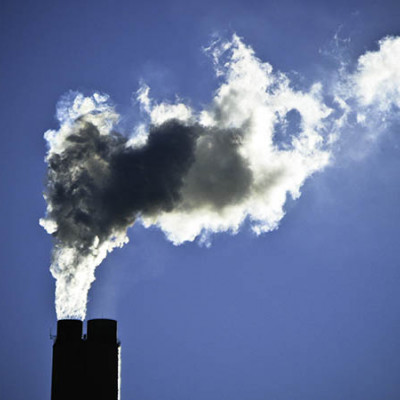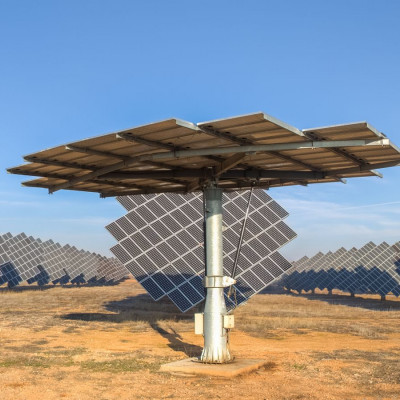August 31, 2023
August 2023 at Policy Integrity
- Our Take on EPA’s New Power Plant Standards
- State Gas Regulators Need a Plan for the Transition Ahead
- The Case for Regional Gas Transmission Planning
- Advising New York’s Utility Regulator on its Zero-Emissions Electricity Goal
- Dr. Ünel Is Awarded an NSF Grant
- 9/19 Conference: Accelerating the Energy Transition
- More From This Month
-

Our Take on EPA’s New Power Plant Standards
In May, EPA proposed new greenhouse gas limits for fossil-fuel-fired power plants, including new gas-fired plants, existing coal-fired plants, and some of the largest existing gas-fired plants. EPA issued these standards under Section 111 of the Clean Air Act, consistent with the legal pathway left intact by the Supreme Court in West Virginia v. EPA, as Dena Adler explains in a piece for The Regulatory Review. In comments to the agency, we also underscored this point and provided suggestions for improving EPA’s proposal. We recommended the agency specify that plants co-fire low- or zero-GHG hydrogen, and expand the proposal’s coverage to more of the existing gas fleet to prevent creating perverse incentives to use older and more polluting plants. We also suggested EPA strengthen its analyses to better value climate change impacts, clarify environmental justice impacts, and improve consideration of social costs.
-

State Gas Regulators Need a Plan for the Transition Ahead
When it comes to natural gas infrastructure, there is a troubling lack of coherent planning on the part of state regulators. State regulatory commissions often have to meet a number of requirements, including ensuring “just and reasonable” rates for ratepayers and, in some cases, reducing greenhouse gas emissions from energy systems. Achieving these goals simultaneously will require state regulators to engage in holistic, long-term gas planning. Without such planning, states will either fail to meet their statutory obligations to reduce emissions, or end up charging ratepayers for inefficiently overbuilt and underutilized infrastructure. Jenn Danis made this point and offered additional recommendations at the New Jersey Board of Public Utilities’ Technical Conference earlier this month.
-

The Case for Regional Gas Transmission Planning
At the federal level, FERC is charged with approving interstate pipelines if they are required by “public convenience and necessity. In a forthcoming paper in the Columbia Environmental Law Review, Dr. Burçin Ünel and Libby Dimenstein explain that the commission rarely looks deeply at whether a new project is truly necessary. Rather, if the developer has customers willing to purchase pipeline capacity, FERC usually approves the pipeline. In place of this myopic approach, Ünel and Dimenstein argue for the use of holistic regional gas transmission planning. Drawing parallels between gas and electric transmission planning, they explain why, under two provisions of the Natural Gas Act, FERC possesses both the legal authority and obligation to require regional planning. If adopted, this process would help the commission avoid inefficient overbuilding, prepare for increasing electrification, and ensure a cost-effective energy transition.
-

Advising New York’s Utility Regulator on Its Zero-Emissions Electricity Goal
The New York State Public Service Commission (PSC), which regulates utilities in the state, recently issued an order seeking input on how to achieve New York's goal of a zero-emissions electricity system by 2040. Policy Integrity filed comments in response to this order in which we made three key recommendations. First, the PSC should coordinate its emissions-reduction efforts with the Department of Environmental Conservation (DEC), and it should adopt DEC’s social cost of carbon. Second, hydrogen can be considered a zero-emissions resource only if it is produced using renewable electricity that is additional to the grid and if it is not leaked out of pipelines. And, third, benefits that accrue to disadvantaged communities as a result of emissions reductions should be quantified and tracked in partnership with other state agencies.
-
Dr. Ünel Is Awarded an NSF Grant
Our Executive Director, Dr. Burçin Ünel, is a co-principal investigator on a research project that was awarded a National Science Foundation grant. The study, which aims to identify measures that can help strengthen the resilience and equity of energy infrastructure during extreme cold weather events, is led by Dr. Chiara Lo Prete of Penn State University, and includes researchers from Washington State University and the University of Wyoming. During high-demand events, such as extreme cold weather, natural gas infrastructure is set up to prioritize homes and businesses (where it generates heat) over power plants (where it generates electricity). This made sense in an era when most heat was generated from gas. However, with increased electrification, more buildings will be relying on electricity for heating. Dr. Ünel and her co-investigators will develop a framework to improve allocation of natural gas during extreme cold events in order to promote resilience and equity in this new era.
-

9/19 Conference: Accelerating the Energy Transition
Join us in-person or virtually for our annual conference on September 19th. This year’s event, co-hosted by the Urban Future Lab, will focus on policies and programs that can help speed the shift to a clean and equitable energy future in the United States. Experts from the federal government, the private sector, and research organizations will discuss such topics as technology-forcing regulations, equity in the energy transition, and efforts to spur demand for emerging technologies. The conference will be held at NYU School of Law and will also be available via livestream. Click here to register!
-
More From This Month
- Andy Stawasz, a legal fellow at Policy Integrity, co-authored an op-ed in the Yale Journal on Regulation’s Notice & Comment blog focused on recent administration efforts to rationally account for the value of natural resources.
- Executive Director Dr. Burçin Ünel co-authored a journal article published this month in IAEE's Economics of Energy & Environmental Policy focused on promoting resilience in electricity capacity markets.
- Policy Integrity submitted comments to the PJM interconnection, which manages the electric transmission system for much of the Mid-Atlantic, on its proposed shift to a seasonal capacity market design and other proposed changes to reliability metrics.
- Policy Integrity submitted comments to the Pipeline and Hazardous Materials Safety Administration on the consideration of climate benefits in its proposed rule to limit methane leakage from gas pipelines.
- We published a blog post highlighting the key takeaways from the final webinar in our 2023 series on energy equity research funded by the Alfred P. Sloan Foundation.
We are currently seeking applicants for an attorney or senior attorney with a primary focus on climate, clean air, and environmental regulations. This application will remain open until the position is filled.
